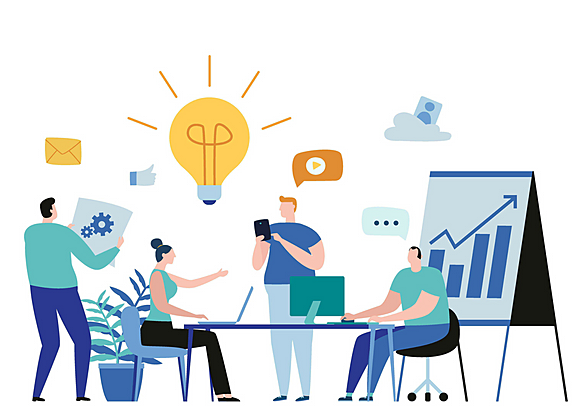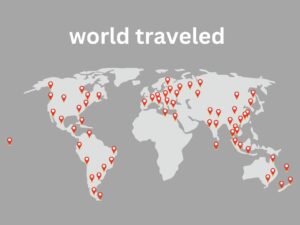5 Future-Proof Skills To Prepare For The Next Decade.
If ever there was a time to step out of your comfort zone and embrace adaptability, it’s now.
Whatever your position and industry, your “critical skills” have changed in recent years and continue to change.
Working remotely and serving customers in new and digitally enhanced ways is just the beginning:
The coming years will see many drastic changes in the world of work and leaders and employees will need to acquire new skills to stay working and be successful.
McKinsey research highlights that adaptability is the ability to learn and apply that knowledge flexibly and efficiently in a variety of situations.
Adaptability is the key to thriving amidst uncertainty. Many, however, struggle with this.
One study found that most employees are passive learners rather than approaching learning with intention.
McKinsey reskilling research indicates that 50% of leaders are experiencing business problems due to an unforeseen skills gap; the majority believe that upskilling and reskilling are at the heart of the solution, yet only 13% feel confident in implementing them.
Whatever the skills, these xxx tips can help leaders and employees learn and adapt as they navigate today’s work environment.
1 – Reformulate what it means to “learn”
An old view of learning leads him to think in the classroom, while adaptability requires a more “free” learning, looking for different ways to expand knowledge even in familiar and new contexts.
Neuroscience shows that the mind can adapt when challenged; the key is to find the sweet spot where investing enough effort can realistically lead to task accomplishment.
Each of us can learn during a typical workday by simply engaging in tasks that can expand knowledge, perhaps experimenting with different ways to prepare a presentation or convene a meeting.
An outdated view of learning can bring the view that mistakes are failure, but adopting a “growth mindset” or encouraging yourself to learn from your mistakes can reveal more openness to learning and embracing challenges. Even a relatively modest undertaking can present an effective challenge.

2 – Believe in the ability to learn.
Curiosity is fundamental to learning and, based on the “growth mindset”, reinforces the belief in the ability to learn. Encouraging yourself to consider alternative approaches will allow everyone to tackle negative self-talk which in turn increases your openness to learning, confidence and ability to grow. Also, in the face of challenges, cultivating enthusiasm and curiosity can help you adapt.
3 – Define learning aspirations rooted in a personal “why”.
Self-regulation, which is an individual’s ability to influence their own behavior. It is a powerful driver of effective and deliberate learning. Encourage yourself and your employees to connect with what really matters to you – this positive energy will carry you forward and equip you to persevere if the going gets tough. Taking a long-term view can help give room to experiment with new approaches and routines to enhance learning.
4 – Develop a personal learning journey.
Everyone owns their own learning journey and can empower themselves, but once you’ve defined which learning aspirations motivate you, you need to break down your learning goals into manageable endeavors and structure your approach to maximize effectiveness
Plan a learning journey with clear goals over time.
Anticipate obstacles to the learning plan and take steps to avoid them.
Schedule when and where learning will take place and specify opportunities to practice new approaches—at the weekly executive team meeting, at an industry conference, or elsewhere.
5 – Incorporate breaks to set aside time for recovery.
See the full article at Mckinsey.
My trip around the world is to inspire you to see the world.





